With a unique storytelling talent and a hidden charm that naturally draws readers in, in his latest work, writer Nguyen Ngoc Tu has opened up an uncertain world with people trying to hold on to something, while also wanting to escape it, in a seemingly endless journey of drifting.
Read “Floating” to see that even a water hyacinth bush gets stuck to itself because “on the way it quickly gives birth, forms clumps and rafts and then imprisons itself in a certain canal”. It turns out that “being stuck is the default outcome, without exception, even for things that have a floating life”.
Natural creatures, multifaceted people, and diverse fates through the pen of writer Nguyen Ngoc Tu all bring about strange sympathy and connection with readers.
“No drifting is accidental. The drifting itself is a message, a signal, an invitation from the horizon. Sooner or later, someone will accept.”

-Are the characters in your book 'Drifting' trying to escape the harsh reality to find freedom somewhere?
But in the end there is no such thing as freedom. The original idea of this book was about people trapped in a horizon, a group of people moving back and forth, thinking they could escape something but could not.
-Is their journey the author's own experience?
Not really. I don't write experimentally, or based on prototypes, that would be underestimating my imagination. If God has given me such a precious thing, I have to polish, craft, and caress it constantly.
-Are you a lover of travel?
Traveling - for me, is also a way to refresh myself, to escape from the boring daily life for a moment, but I don't want to label myself as a "travel lover". Every title is like a shirt, maybe I don't fit it, I don't like it, so it won't be natural to put myself in it. I go because at that moment I want to go, that's all.
-Do you like to explore the movement of memory and its haunting effect on each person's present life?
There are so many interesting things to say about memory, so many interesting ideas when I turn it over. I think people have many ways of dealing with memory, and each form brings a different story. The elusiveness of memory is also an attractive topic, for me.
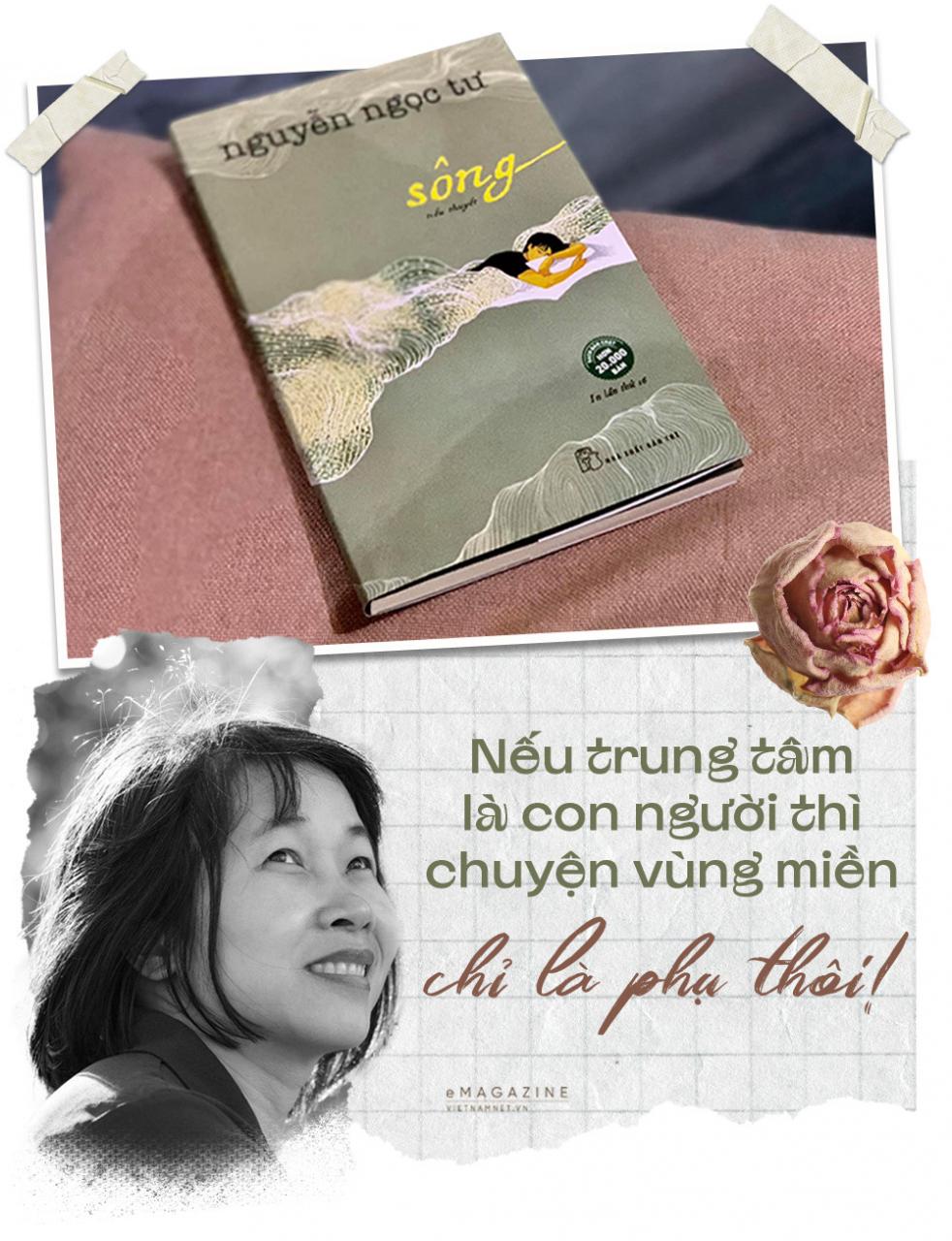
-Does it feel like in your latest work, you no longer "lock" the characters, details, and creative circumstances in the Southern river region, but "open the way" to a more open world?
I have been open about it for the past ten years. I try to spread everything as much as possible. But like a person who has transformed himself, the core remains the same. I do not care about what region or country I write about. If the center is the people, then the regional issues are just secondary, just the background.
-Do you intend to take your writing beyond the rivers of the West to the dusty urban areas and the equally suffocating and oppressive fates?
Maybe, I don’t know. The obstacle for me now is that I want the presence of nature, trees, rivers in my writing. Where people’s fates change because of a rain or wind. Those things are difficult to bring into urban spaces.
-With essays, I see that your writing style combines literature and journalism, more clearly revealing your personal perspective on the reality of life?
So I don't really care about this genre, even though it helps me earn money (laughs). Revealing too much of myself in essays or poems makes me a little insecure. It would be more natural if my voice had to come out through the story, through the characters, rather than trying to force the writer's voice in.
-Do you consider literature as your hiding place, so that others cannot "read" you?
The author should only be "read" through the story, through the characters. All expressions should be there, and the readers will recognize me, that way the writer himself is exposed in the most natural way.
-Short stories, novels, essays, poems and sometimes even illustrations, your work is admirable. But what is the creative field that you put the most effort into and find most interesting?
Every word is interesting. But as I said earlier, I am a bit reserved when it comes to essays. And what can I do, sometimes I have no choice but to make a living by writing, all I have to do is do my best.
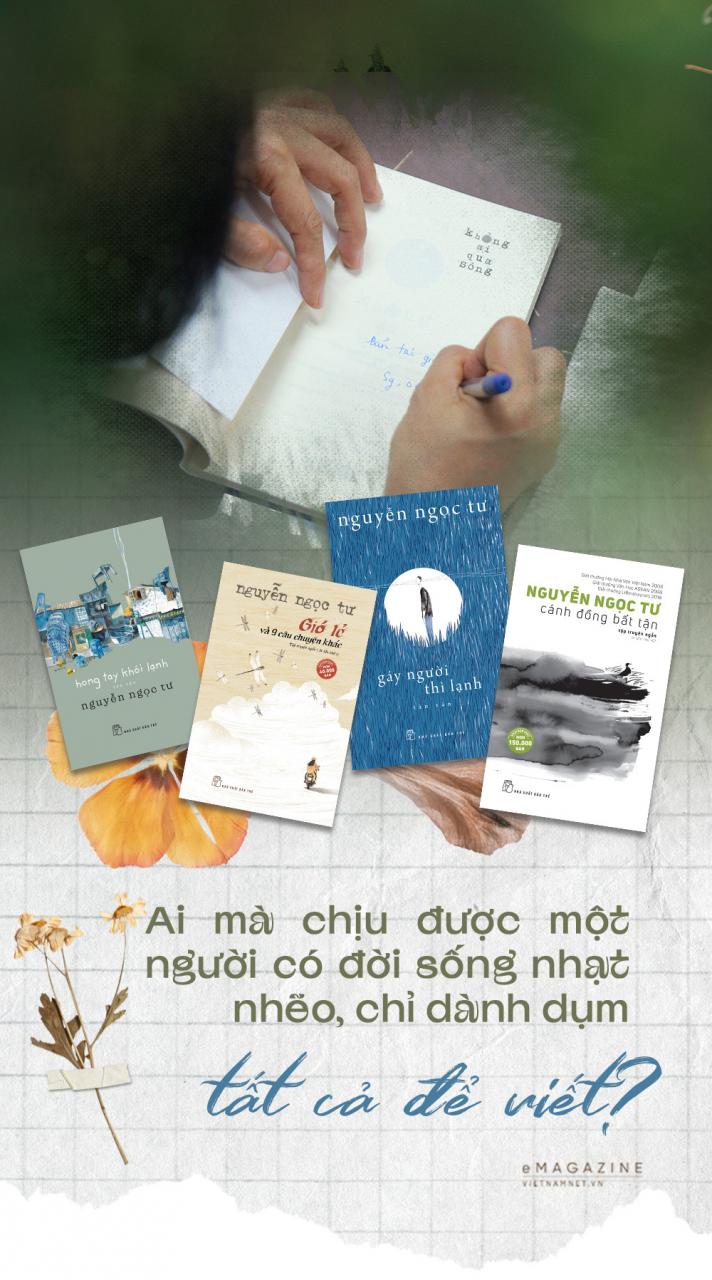
-From my observation, it seems like you are not an open-minded or sociable person. Do you have many friends in the literary world?
I am open, but only with a few people. I also like to communicate, but not too much. Friends, not just in the literary world, are sparse according to the above habit. Not participating in social networks is also a limitation in making friends. Actually, if I do make friends, it will be difficult to last long. Who can stand a person who lives a bland life, has nothing to express, confide in, and saves all his thoughts for writing.
-That's why you rarely organize meetings with readers even though many people want to "see" and talk to you, not through writing?
I thought it was superfluous to say anything more, and the same with my presence. In those fleeting, crowded meetings, I was in an uncomfortable situation, which was not really me.
-You consider writing to be "boring" but many readers and young writers consider you an extremely attractive writer and want to pass on your craft. What would you say to them?
What is boring is not the writing, but the daily life of a writer like me. Not much hanging out, no friends, not knowing what the current trends are, any hot news reaches me and I become indifferent. That is why I like to write, because with literature, in the world that I create, I find my life becomes extremely rich and lively.
With young writers, besides the fact that I consider them colleagues, I think sharing also requires art so that others don't feel like they're being lectured.
-From a clerk at the magazine ' Ca Mau Peninsula' to a famous writer whose almost every work created waves in the literary world, looking back on the journey you have taken, what makes you most concerned?
I have too little time to write. My writing process is more or less dominated by earning a living. I also listen too much, when I should just look into my own inner world.
-Do you have any plans to bring your work beyond borders to international readers?
No, I have no plans. It depends on fate. And the biggest fate depends on the translator. And not just me, whether Vietnamese literature can go out or not, depends on the translators, that's what I think.
-Are you confident in living a healthy and prosperous life with your writing career?
The job gives me a decent income in the provincial life. My needs are few. As for living well, or being rich as you say, there is probably only one person in Vietnam. And that person is not me.
-Are writers afraid that one day they will run out of capital, run out of emotions and have to stop writing?
I usually ignore that assumption so as not to worry or feel insecure about the future (which I am not sure if it exists). But I am learning to go with the flow. People have to grow old, have to lose their life energy, have to face a worn-out body. Who knows, there might be other bigger fears at that time, fear of illness, fear of death, for example.
-I'm curious to know what books writer Nguyen Ngoc Tu often reads?
Everything. Books that I believe I will learn something from. For me, reading is learning. I don’t read for entertainment, or out of curiosity, like when I hear that a book has problems, or that book is sensitive. I think I don’t have much time, so I should read something that will help my writing.
Even authors I consider aliens, like Jorge Luis Borges or WGSebald, I learned from reading them how vast the literary world is. I made a little progress in climbing out of the well.
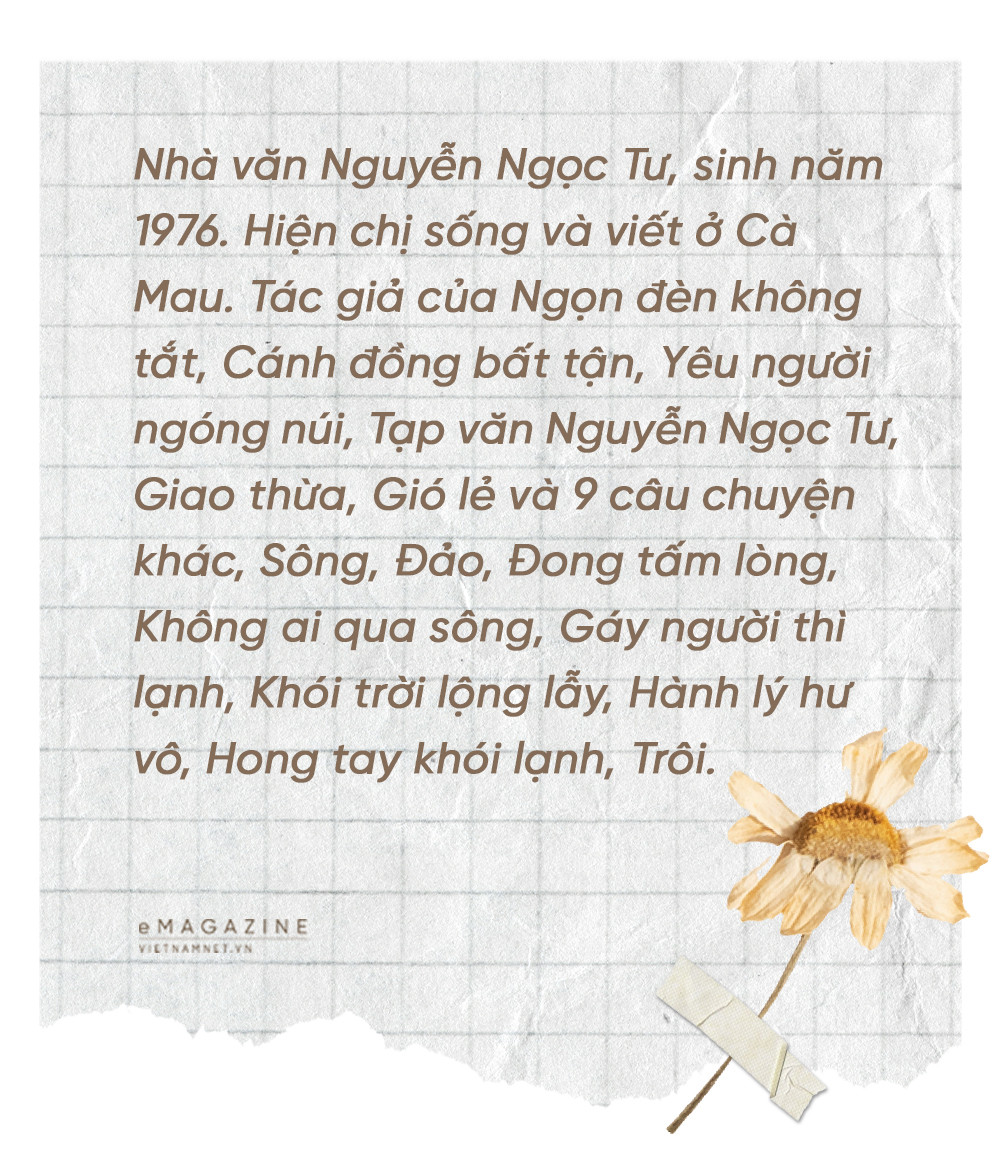
Article: Linh Dan
Photo: NVCC
Design: Cuc Nguyen
Vietnamnet.vn Source

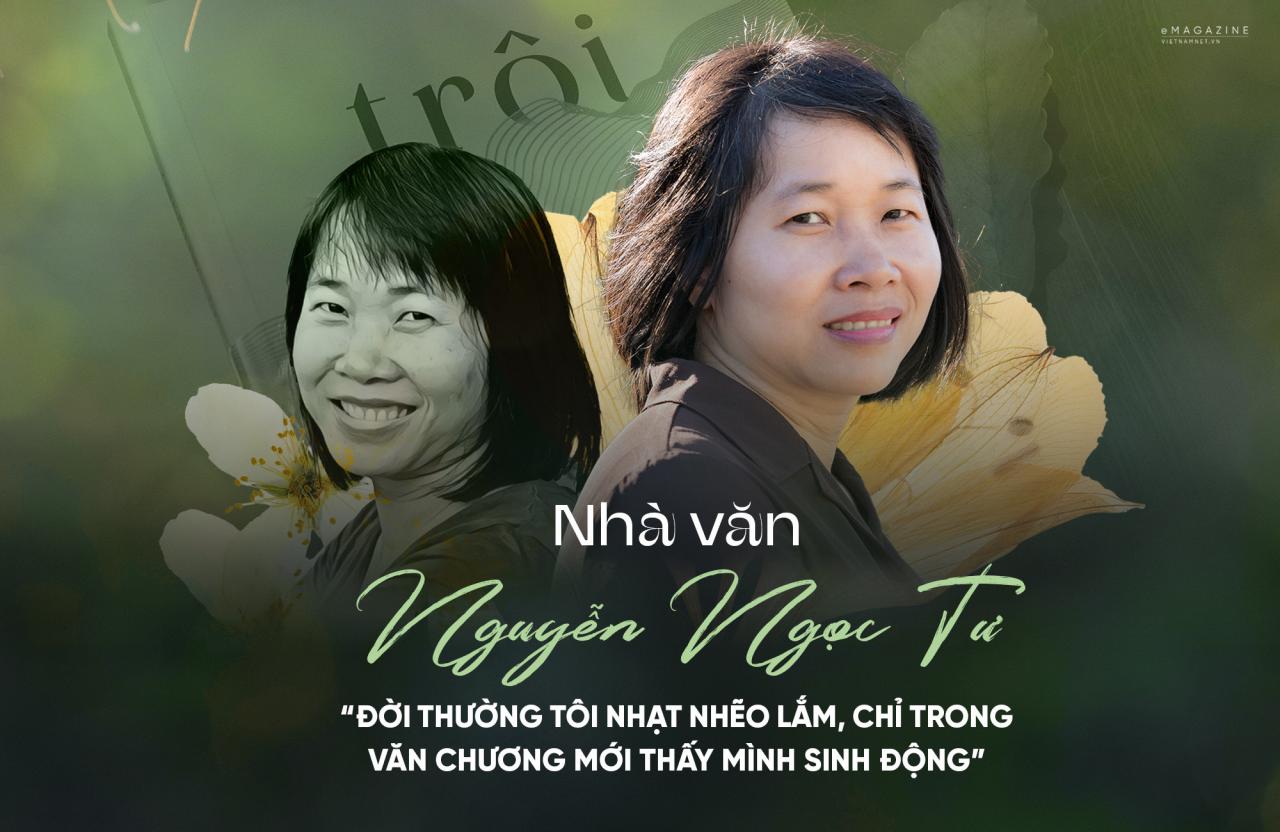
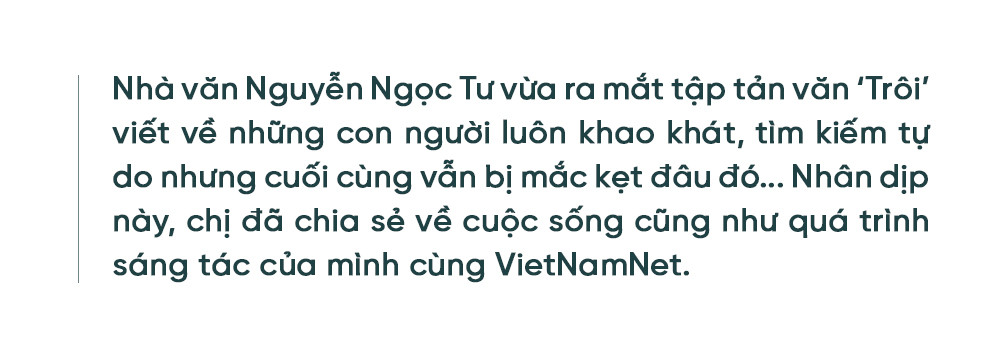

![[Photo] Prime Minister Pham Minh Chinh inspects and directs the work of overcoming the consequences of floods after the storm in Thai Nguyen](https://vphoto.vietnam.vn/thumb/1200x675/vietnam/resource/IMAGE/2025/10/08/1759930075451_dsc-9441-jpg.webp)

![[Photo] Prime Minister Pham Minh Chinh attends the World Congress of the International Federation of Freight Forwarders and Transport Associations - FIATA](https://vphoto.vietnam.vn/thumb/1200x675/vietnam/resource/IMAGE/2025/10/08/1759936077106_dsc-0434-jpg.webp)




























































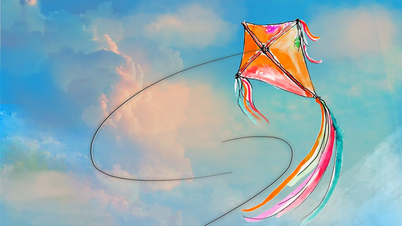























Comment (0)